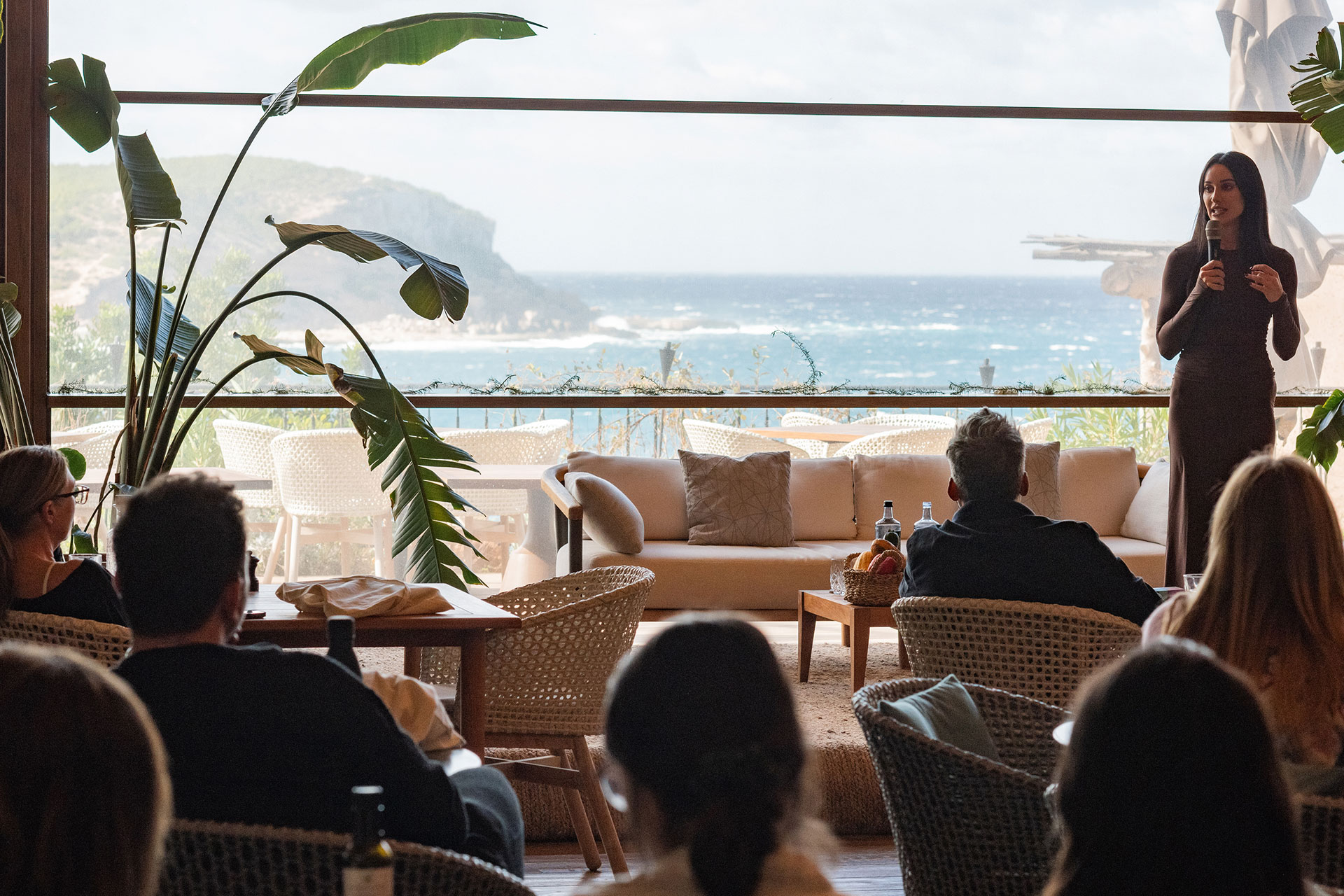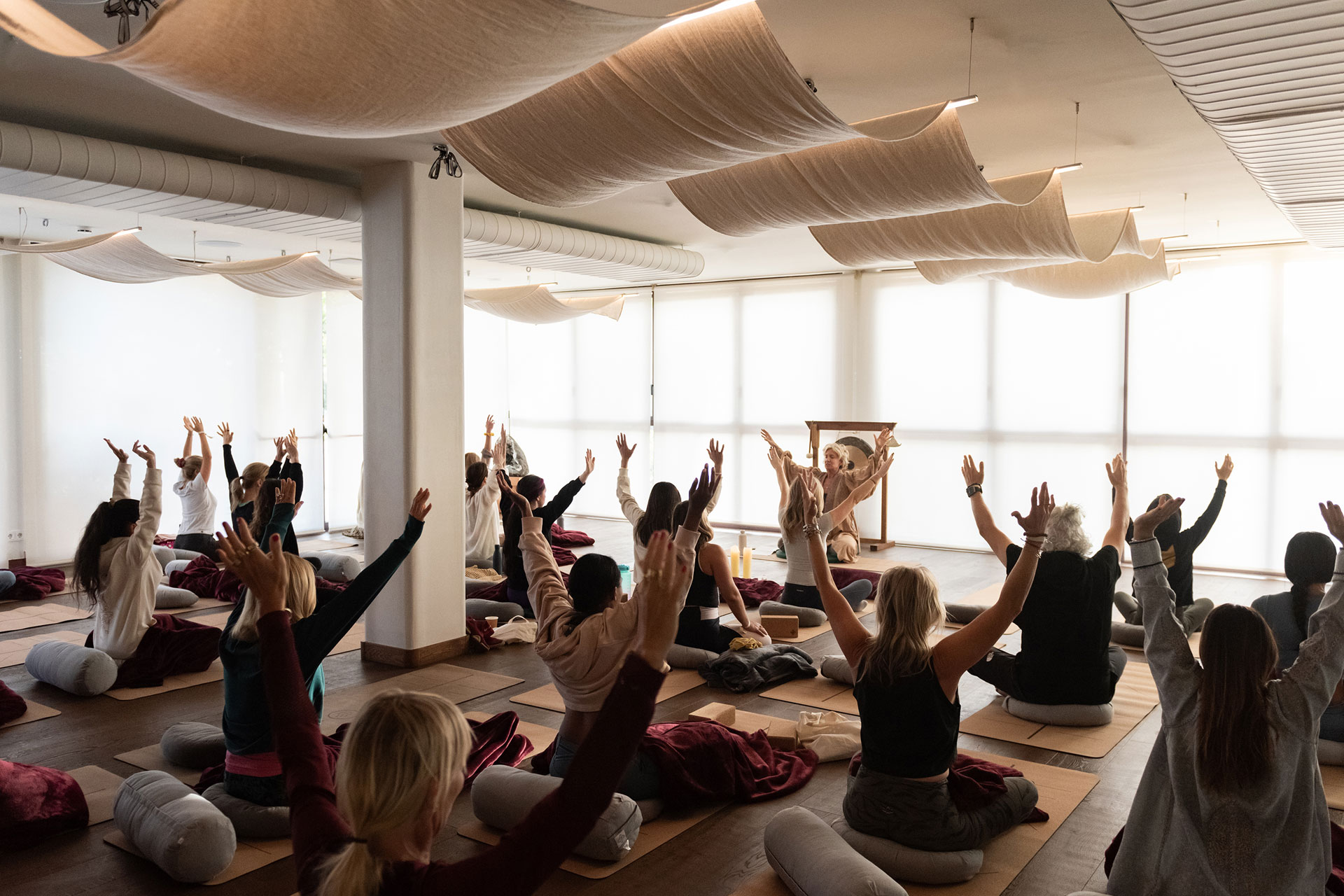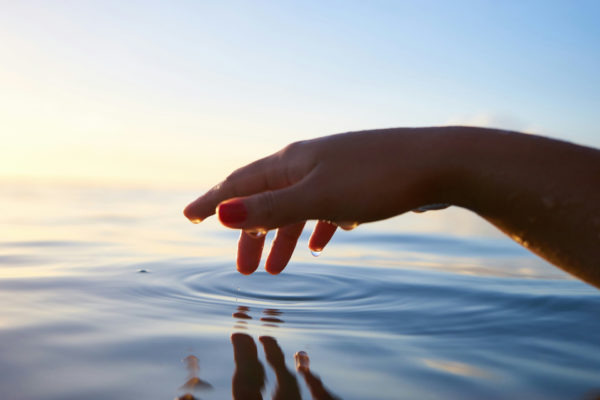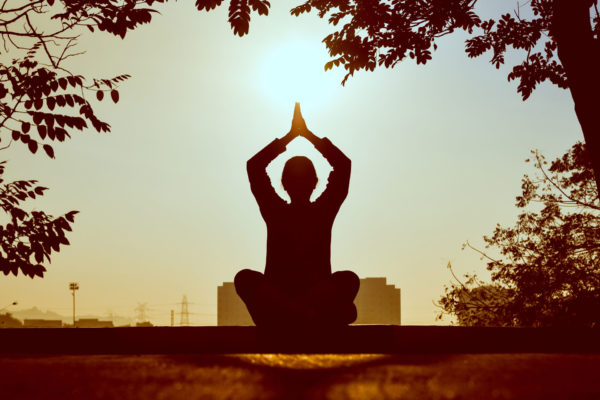Review: The Alma Festival, Six Senses Ibiza
By
2 years ago
Here's what we learnt at the famed wellness festival
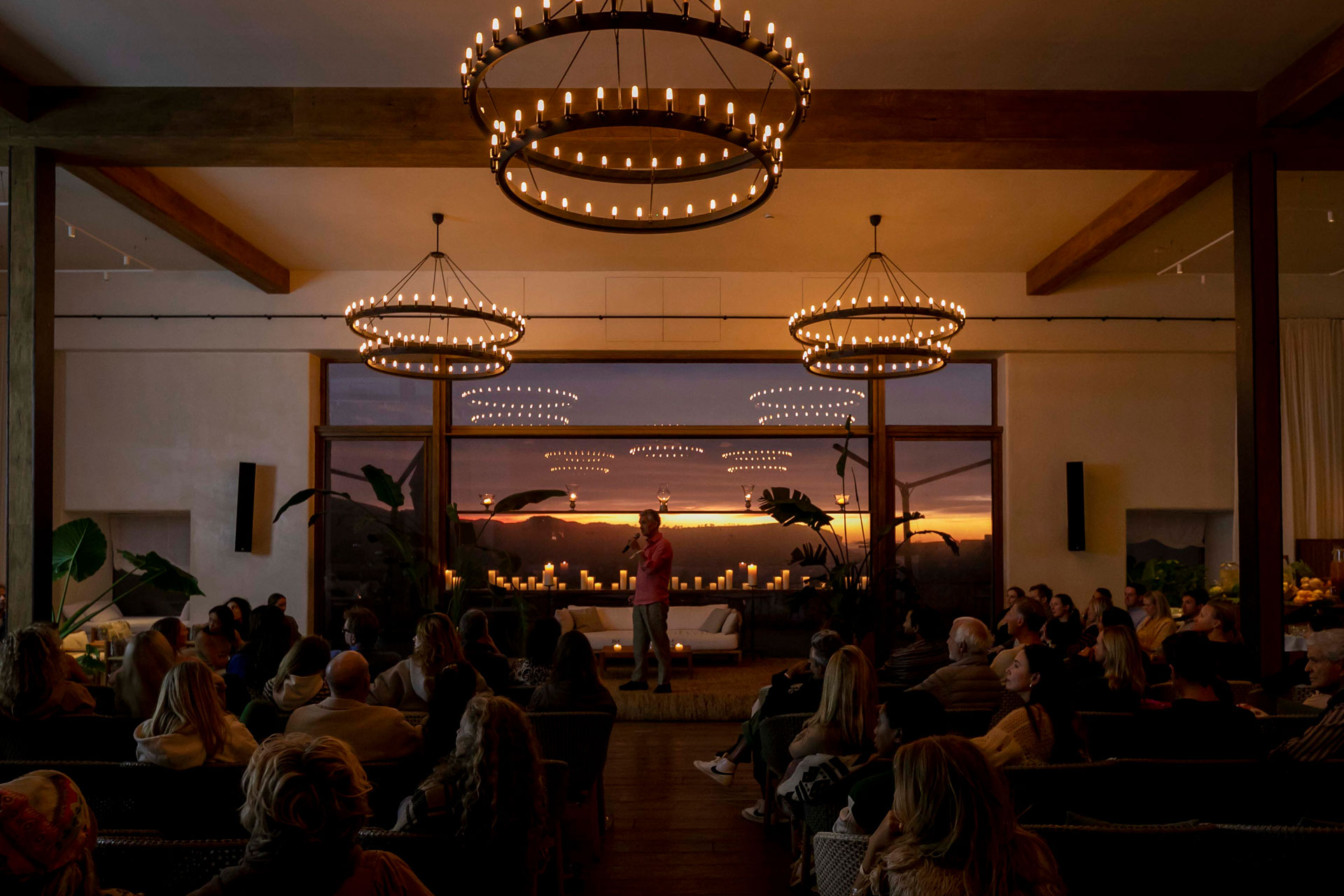
Each November, Six Senses Ibiza on the northern tip of the island transforms into Alma, a unique three-day festival dedicated to wellness workshops that cater to the mind, body, and soul. What sets this retreat apart from others is the calibre of its guest speakers and visionaries. Here, Camilla Hewitt shares what she learned from this year’s all star line-up of wellness pioneers.
Key Takeaways From The Alma Festival, Six Senses Ibiza
Manifestation isn’t just a thought process; it requires action.
Manifestation has become a bit of a buzzword, but there are certain misconceptions surrounding this theory. Perhaps the biggest of those is the idea that you can wish for something and have it manifest out of thin air. While it begins in the mind, manifestation takes more than just thinking your way to your end goal, particularly if your thoughts and actions are not aligned. Inspirational Speaker and Manifesting Expert, Roxie Nafousi, explains that once you are clear in your vision, you have to believe you’re worthy of receiving it and align your behaviour accordingly. Simply put, ‘Step into that character until you become them’, says Roxie. For manifestation to be truly effective, we have to be proactive and remain positive about our affirmations.
If we paid the true cost of clothing, we wouldn’t be so willing to throw it away.
The production of fast fashion has pushed the price of clothing down so much that consumers are purchasing more than ever. However, it’s not just the price tag that is driving sales; the poor quality of mass-produced items means they’re ending up in the bin after just a few wears. The cost of buying poor-quality clothing eventually ends up being more than buying a few pricier pieces that last longer. Amy Powney, Creative Director of Mother of Pearl, says ‘we need to consume less and consume better’. Amy acknowledges that it is hard for consumers, and there needs to be more transparency on supply chains. ‘Just because a swing tag says 50 percent recycled materials doesn’t mean it’s good for the planet.’ At Mother of Pearl, Amy is leading by example, reimagining the production process so that, ‘now we don’t design something and try and make it work sustainably; we find the supply chain we like and we design within it.’.
Synarchy can propagate harmony in communities.
While Richard Rudd’s teachings would take months to unravel, there is a takeaway from his concept of the Gene Keys that applies to everyday life and the evolution of our communities. Richard explains that ‘at the core of the Gene Keys is the principle of synarchy – the self-organising evolutionary impulse that forges us into a collective consciousness.’ Simply put, it is the building blocks that begin with an individual and then ripple to a partnership, unit, network, society, and eventually a system. In our ecosystem, bees are a great example of synarchy; they are self-organised and work in harmony, representing the culmination of teamwork and nature operating in perfect resonance. This is just a scratch on the surface of Richard’s wisdom, to find out more visit genekeys.com.
Our emotions do not define our mental health.
In her conversation on strategies for resilience and mental wellbeing, clinical psychologist Dr. Julie Smith explained that ‘you can be grieving and still be mentally healthy’ – a concept that can be applied to the range of emotions we all experience at some stage in our lives. ‘Being sad is a natural response to a huge psychological and physical threat’ says Dr. Julie, who recommends ‘letting emotion take its course – don’t use numbing behaviours or push it away’. When it comes to anxiety, particularly around new situations, Dr. Julie explains, ‘It’s an emotion not too dissimilar from excitement. If we allow anxiety to be there instead of allowing it to hold us back, we can begin to manage it and recognise that our body is preparing to bring its A game.’ Dr. Julie’s strategy for dealing with emotions such as grief, stress, or anxiety is mindfulness – have an awareness of what you’re dealing with and know where you need to focus your attention. A therapist can of course help, speaking of which, ‘you don’t have to be struggling to seek help’, says Dr. Julie. Being mentally healthy is all about living in line with your values, and a conversation around this can cultivate the awareness you need to continue to have a healthy mindset.
Free movement can transform your workout.
Exercise classes can be incredibly scripted, meaning we spend much of the time working out the next move in our heads. Free movement provides respite from the rules, allowing you to get out of your head and into your body. Part exercise, part emotional release, The Class by Taryn Toomey combines traditional repetitions (yes, burpees!) with free movement, and full-on shake-it-off moments, all to a soundtrack that stirs the soul. Free movement like this is usually saved for special occasions, when we lose our inhibitions for a moment. By practicing it consciously, we can release pockets of tension in our bodies that may have gone unnoticed. Emotional release is usually associated with the mind and talking therapies, but the body holds memories and trauma too. During The Class, Taryn challenges you to ‘see what comes up’, talking you through the cathartic breathwork and movement to deal with whatever that is, be it sadness, pain, anger, or joy. To experience it for yourself, head to theclass.com.
We are not what we eat, but what we can digest.
In Ayurveda, having good digestion is one of the most important pillars of maintaining good health. ‘You want your body to be able to properly digest and extract the most nutrition from your food’, says Jasmine Hemsley, which is why you’ll hear Ayurvedic doctors insist that it’s more important to have good digestion and a bad diet than bad digestion and a good diet. An expert in Ayurveda, Jasmine advises that cooked food is much easier for the body to process and recommends that you stop eating before you’re full, as the stomach needs room to digest. In addition, chewing makes things easier for your gut; ‘remember, there are no teeth in your tummy’. Finally, keep snacking to a minimum; ‘too much food, too often, weakens our digestive fires, as they never get a rest or get to completely digest a meal before we pop even more food in our mouths’, says Jasmine.
Feed your gut microbiome – it’s a living pharmacy.
Tim Spector, Professor of Genetic Epidemiology and Co-Founder of Zoe, describes our microbiome as a ‘living pharmacy’, made up of trillions of microbes, including the bacteria that help digest our food, regulate our immune system, and protect against harmful bacteria that cause disease. ‘There is a correlation between microbe diversity and disease, and improving diet can dramatically improve health’, explains Spector. His recommendation; ‘eat 30 plants per week’. This is because plants contain prebiotics, which provide fuel for good gut bacteria. Moreover, different plants contain different prebiotics, which in turn feed different gut bacteria. This means that eating a wide range of plants is likely to support the diversity of the bacteria in your gut microbiome. If 30 sounds like a lot, ‘Increasing the variety and amount of plants in your diet doesn’t have to be difficult,’ says Tim, ‘especially once you expand your idea of what counts as a plant-based food to include spices, herbs, nuts, and seeds.’ He also notes that we should be spending our money on organic produce, not supplements.
BOOK IT:
Next year’s Alma Festival will take place between October 24-27. To book your space, visit almafrequency.com. Alma Tickets start at €3,336 for single-occupancy accommodation and €5,622 for double-occupancy accommodation. Ticket prices will increase based on the accommodation type selected and timing of booking, as ‘early-bird’ tickets with preferential pricing will be available for a limited time. Prices included two or three nights’ accommodation at Six Senses Ibiza, food and beverage (breakfast, lunch, and community dinners), and access to all programming and events.

